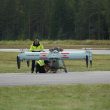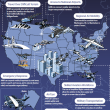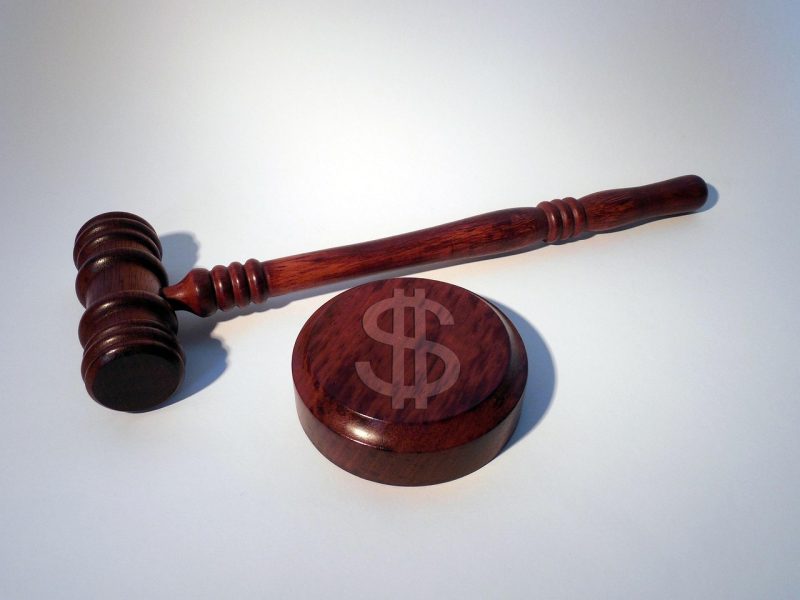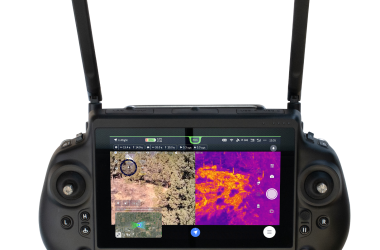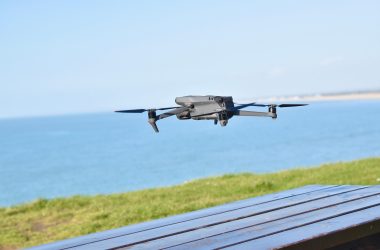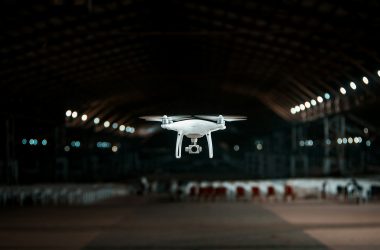The FAA proposed $341,413 in Civil Penalties Against Drone Operators
In August of 2024, the Federal Aviation Administration (FAA) issued a press release stating that it had proposed $341,413 in civil penalties against 27 drone operators from October 2022 to June of 2024. In the press release, the FAA detailed 6 of those cases, but did not mention any specifics about the 21 additional cases it had brought. I was curious to know what violations were involved in these additional 21 cases.
FOIA Request for FAA Cases Against Drone Operators
I requested those additional cases under the Freedom of Information Act, a federal law that allows the public access to certain federal agency records. I received two responses from the FAA, covering a slightly longer time period – January 2022 to November 2024 – and including certificate action cases (those involving suspension or revocation of an FAA airman certificate), as well as civil penalty cases. The August press release focused on civil penalty cases and did not mention any certificate actions, although many were initiated in the time period covered. For Part 107 pilots, how the FAA handles violations by certificate holders is certainly of particular interest.
Analysis Based on FAA Spreadsheets of Drone Enforcement Cases
This analysis is based on the spreadsheets provided by the FAA, so it is limited to FAA data entries on the individual cases. For privacy reasons, the spreadsheets do not include the names of the individuals involved. There is no detailed information on these cases, how the violations occurred or how they were discovered. At best, one can glean what happened by the list of regulations the FAA recorded as violated and their severity by the sanction imposed. For cases that were settled, the final settlement amount is recorded but not the reasons justifying those settlements. So, the spreadsheets do not include mitigating factors that the drone pilot may have given that caused the FAA to reduce the sanction.
FAA Sanctions Against Certificated Pilots
According to the FAA’s data, from January 2022 to November 2024, the FAA took legal enforcement action against 43 individuals. Of those 43 individuals, 13 were airmen certificate holders – including 12 holding remote pilot certificates and one holding a commercial pilot certificate. The other 30 cases were against individuals flying drones in violation of the Federal Aviation Regulations who were not holders of remote pilot certificates and the cases against them sought civil penalties. The commercial pilot certificate was revoked for falsification of records, apparently related to a Part 107 application.
Of the 12 enforcement actions against remote pilot certificate holders, there were:
- 3 revocations/emergency revocations based on drug convictions;
- 1 emergency revocation for using an aircraft in the commission of a drug crime;
- 1 emergency revocation based on information from the Transportation Security Administration that the individual was a security/terrorism threat;
- 1 emergency revocation for falsification of a Part 107 record;
- 2 emergency revocations, including for TFR/controlled airspace violations;
- 1 90 day suspension for a drug conviction; and
- 3 suspensions, including for TFR/controlled airspace violations: 330 days, 180 days (settled for $1250 civil penalty) and 120 days.
FAA Sanctions Against Uncertified Drone Pilots
Thirty civil penalty cases were brought by the FAA against drone pilots who do not hold Part 107 certificates. Although they do not hold Part 107 certificates, they were each charged with violating Part 107. his is because the FAA strictly interprets the applicability provisions of Section 107. 1(a) https://www.ecfr.gov/current/title-14/chapter-I/subchapter-F/part-107/subpart-A/section-107.1.
This applicability section states that all drone pilots must comply with Part 107 unless they fall under an exception listed in 107.1(b). For most individuals, the relevant exception is operations “subject to the provisions of 49 U.S.C. 44809,” the exception for limited recreational operations. This means that any operation that is not fully in compliance with the limited exception, must be operated under Part 107 and the operator must hold a Part 107 certificate. If operations are not conducted in full compliance with that limited exception, the FAA will charge the drone pilot with violations of Part 107, including the requirement to hold a Part 107 remote pilot certificate. This means that failing to comply with even one 49 USC Section 44809 requirement – for example, operating in controlled airspace without FAA authorization or flying beyond visual line of sight – places the drone pilot in violation of the Part 107 requirement to hold a certificate, as well as all other Part 107 requirements that applied to that flight.
Of the 30 civil penalty cases against uncertified drone pilots, 21 included violations of controlled airspace (Section 107.41) and/or Temporary Flight Restrictions (TFRs) (Section 107.47). The sanctions proposed ranged from $19,600 (settled for $6,000) to $1,800, with most in the $18,000 range.
The remaining 9 civil penalty cases included allegations of careless or reckless operation, flying beyond visual line of sight, flying at night without appropriate lighting and/or flying over people without authorization. Three of these cases also included the failure to give right of way to other aircraft. These sanctions ranged from $270,000 – a case that media reports stated involved a drone operator harassing homeless people hundreds of times with his drone – to $2,914.
The cases settled by the FAA were often for significantly smaller penalties than the agency initially proposed. Of the cases the FAA highlighted in its August press release, below are updates on those cases that were settled. If no settlement is listed, the case remains open for the amount proposed by the FAA.
- $32,700 against a person who interfered with a law enforcement operation while flying an improperly registered and unlit drone on Sept. 22, 2021, in Wesley Chapel, Florida. The drone operator flew so close to a Pasco County Sheriff’s Office helicopter that the pilot had to stop the search for a burglary suspect to prevent a mid-air collision. The individual operated at night without a Remote Pilot Certificate, did not have anti-collision lighting and flew the drone higher than the 400-foot limit. This was settled for $4,000.
- $18,200 against a person who operated an unregistered drone during the weekend of the Miami Grand Prix, a Formula 1 event, on May 7, 2022 in Florida. The operator disregarded a temporary flight restriction (TFR) and several FAA regulations, including operating in Class D airspace without prior authorization, not maintaining visual line of sight with the aircraft at all times and operating without a Remote Pilot Certificate. This was settled for $9,000.
- $16,000 and $4,000 against two people who operated drones near SoFi Stadium in Inglewood, California, while a Temporary Flight Restriction (TFR) was in place for Super Bowl LVI on Feb. 13, 2022. The airspace was classified as national defense airspace, the operators flew drones in Class B airspace without authorization, and neither possessed a Remote Pilot Certificate. Initially a $4,000 case but was settled for $3,000.
- $7,760 against a person who operated an unregistered drone using first person view inside Paul Brown Stadium in Cincinnati, Ohio, on Jan. 15, 2022. The operator flew over the crowd during an NFL game at night, did not have a Remote Pilot Certificate and flew beyond-visual-line-of-sight in a Temporary Flight Restriction (TFR) without an approved FAA airspace waiver.
- $5,000 against a person who created a collision hazard while flying a drone close to a helicopter in Little Rock, Arkansas on July 30, 2022. The drone crashed to the ground after experiencing rotor wash from the helicopter. The drone operator did not have a Remote Pilot Certificate.
Can Any Lessons Be Drawn from the FAA’s Enforcement Focus?
With only 43 enforcement cases over an almost two-year period, it seems that the FAA is focusing its enforcement on a small number of cases that it considers the most egregious safety violations. Staying out of controlled airspace without authorization – and especially avoiding TFRs – would be one way to avoid drawing negative attention from the FAA.
One final lesson from the spreadsheets provided is that, while the FAA may propose a very high civil penalty, it settles many cases for far less – one case initiated for $16,000 for controlled airspace and TFR violations was settled for $500. So, anyone who receives an enforcement action from the FAA should take advantage of the opportunity for an informal conference where mitigating factors – including the ability to pay a civil penalty – can be raised. While an attorney is not required in FAA enforcement actions, it is best to, at a minimum, consult with an attorney familiar with FAA enforcement actions if you are ever faced with an FAA enforcement case..


